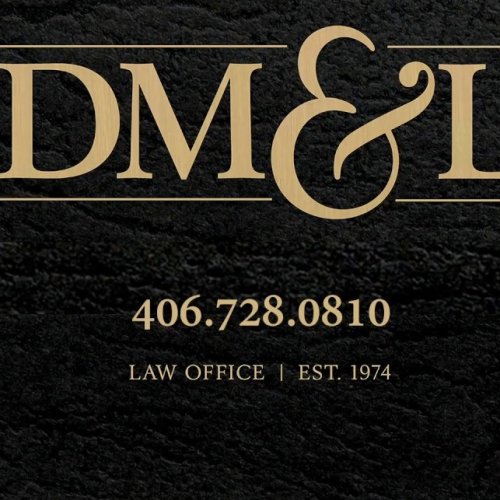Best Debt & Collection Lawyers in Hamilton
Share your needs with us, get contacted by law firms.
Free. Takes 2 min.
List of the best lawyers in Hamilton, United States
About Debt & Collection Law in Hamilton, United States:
In the United States, creditors are permitted to collect monies they are owed by borrowers. In Hamilton, as in the rest of the nation, this process is regulated by a combination of federal and state laws designed to prevent unfair practices and protect the rights of consumers. The principles governing this are found in the Fair Debt Collection Practices Act (FDCPA), which sets limits on methods of collection, provides guidelines for court-ordered debt collection and allows consumers to dispute debts.
Why You May Need a Lawyer:
Dealing with debt collection can often be overwhelming and stressful. You might need a lawyer if you are being harassed by a collector, require understanding of your legal rights regarding debt, are facing wage garnishment, or are considering bankruptcy. Lawyers specializing in debt and collections can advise you about your legal rights, negotiate with creditors on your behalf, represent you in court if you are being sued by a debt collector, or guide you through the bankruptcy process.
Local Laws Overview:
In Hamilton, the fair debt collection laws are enforced in line with federal and state regulations. Many creditors and collectors are required to have a license to operate, and are not allowed to engage in deceptive, unfair, or harassing behavior. They can't make inaccurate statements about the amount of debt owed, threaten legal action unlawfully, publicly disclose your debts, or contact you at inconvenient times or places. Legal action for recovery of a debt must be initiated within six years for most types of consumer debt.
Frequently Asked Questions:
What can I do if I believe a debt collector is harassing me?
If you feel a debt collector is harassing you, you can issue a cease communication request. If the behavior continues, you may consult an attorney or report the collector to the state Attorney General's office or the Consumer Financial Protection Bureau.
Can a debt collector contact me any time or any place?
According to FDCPA, a debt collector may not contact you at inconvenient times or places, such as before 8 a.m. or after 9 p.m., unless you agree to it. They may also not contact you at your place of employment if they're told not to.
Can I stop a debt collector from contacting me?
Yes. If you want to stop a debt collector from contacting you, you can send them a letter requesting them to stop. After they receive this letter, they may only contact you to confirm there will be no further contact or to notify you of a specific action like filing a lawsuit.
What if I don’t think I owe the debt?
If you don't believe you owe a debt, you can send a letter to the collector disputing the debt and asking for validation. The collector must then stop collection activities until they send you written verification of the debt.
Can a debt collector sue me?
Yes, a debt collector can sue you to recover a debt. If you are sued, do not ignore the lawsuit. You should respond by the date specified in the court papers to protect your rights.
Additional Resources:
You might find it helpful to consult the website of the Consumer Financial Protection Bureau (CFPB) or the Federal Trade Commission (FTC) for further information regarding your rights under the FDCPA. Your state Attorney General's office can provide information about state laws and can offer assistance regarding complaints against debt collectors. National Association of Consumer Advocates (NACA) and National Foundation for Credit Counseling (NFCC) also offer valuable resources.
Next Steps:
If you're dealing with debt collection issues, consider discussing your situation with an attorney specialized in debt & collection law. They can educate you about your rights, help you resolve the issues, or represent you in legal procedures. It might also be beneficial to seek assistance from a reputable credit counseling agency for advice on managing your debts.
Lawzana helps you find the best lawyers and law firms in Hamilton through a curated and pre-screened list of qualified legal professionals. Our platform offers rankings and detailed profiles of attorneys and law firms, allowing you to compare based on practice areas, including Debt & Collection, experience, and client feedback.
Each profile includes a description of the firm's areas of practice, client reviews, team members and partners, year of establishment, spoken languages, office locations, contact information, social media presence, and any published articles or resources. Most firms on our platform speak English and are experienced in both local and international legal matters.
Get a quote from top-rated law firms in Hamilton, United States — quickly, securely, and without unnecessary hassle.
Disclaimer:
The information provided on this page is for general informational purposes only and does not constitute legal advice. While we strive to ensure the accuracy and relevance of the content, legal information may change over time, and interpretations of the law can vary. You should always consult with a qualified legal professional for advice specific to your situation.
We disclaim all liability for actions taken or not taken based on the content of this page. If you believe any information is incorrect or outdated, please contact us, and we will review and update it where appropriate.








